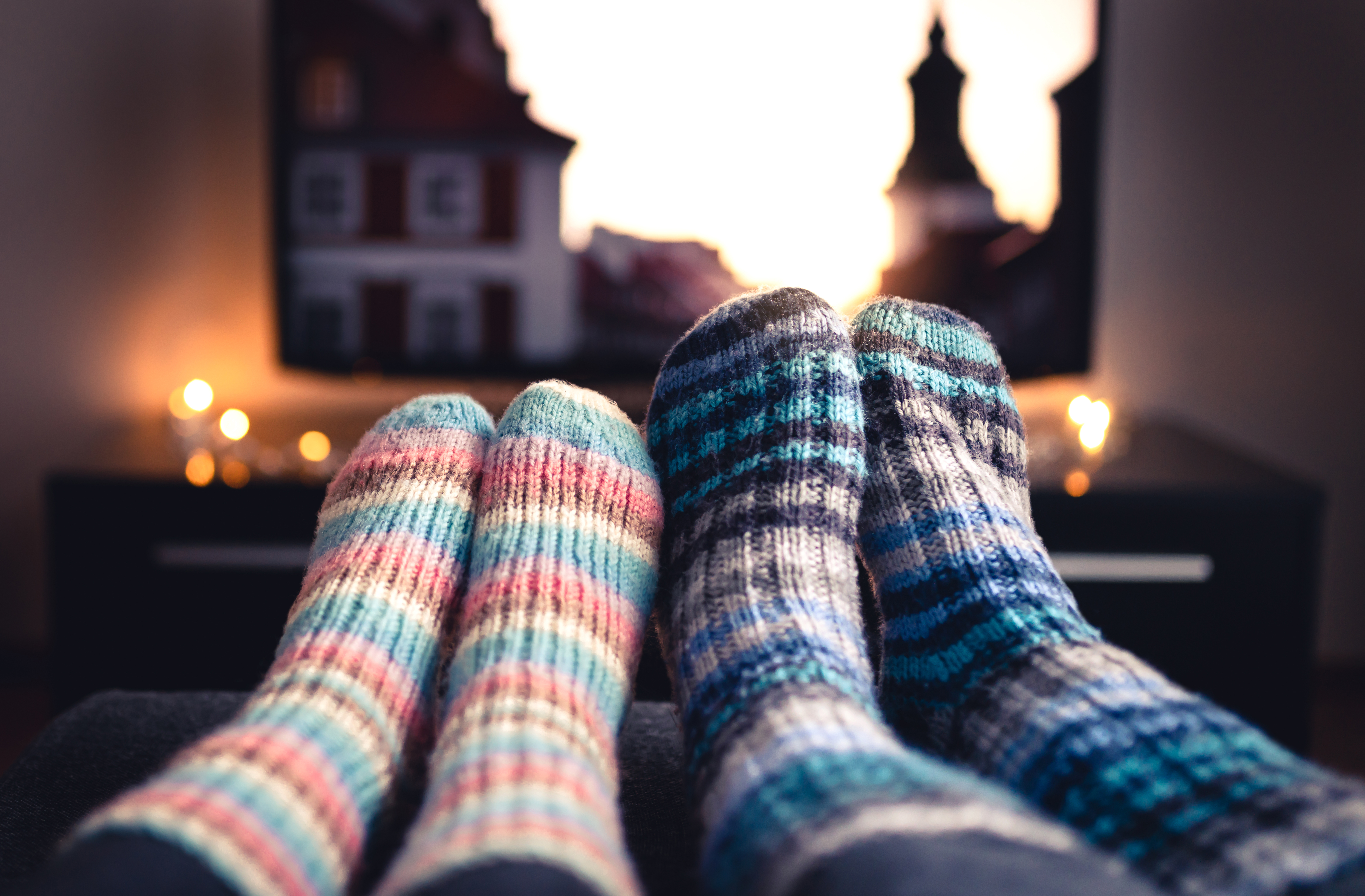Overall inflation and increase in energy costs over recent years have many homeowners wondering how they can lower heating costs this winter while still keeping warm. We'll cover seven common heating mistakes that are costing you extra money, and how you can fix them going into this winter.
7 Common Heating Mistakes (& How to Save Money this Winter)
1. Running the heat all the time
Keeping the heat on while no one is home will not only waste money but will cause wear and tear to your heating system over time. While coming back to a warm home is nice, your best bet is to completely turn the thermostat off before leaving. One way to overcome this is by installing a smart thermostat or programmable thermostat. By setting a schedule, you'll save money while no one is home and still have the option to warm the house up right before you arrive.
Certain smart thermostats can even sense when you're not home and adjust the thermostat accordingly, including turning the heat back on before you get home.
2. Cranking the heat
If you don't go with a programmable or smart thermostat, you can manually turn off the heat before you leave and turn it back on once you get home. While you may be tempted to crank the heat to get it warm as quickly as possible, turning it up high will increase your heating bill and can even damage your heater. Raising the temperature higher than normal will not cause your home to heat up any faster; instead, you should keep it at a consistent temperature or gradually increase it as needed.
If you're cranking up the heat to accommodate for rooms that never get warm enough, you may need to look into other options such as a portable space heater. If you're interested in a more permanent upgrade, you can opt for adding a ductless air handler to get zoned temperature control.
3. Letting drafts in
If you're letting drafts enter your home, you're also letting heat escape. Cracks and gaps in your windows and doors are both energy-wasting and money-wasting. Luckily, they're easy to plug after a trip to your local home improvement store. Weather stripping is a good solution for drafty doors and windows, while caulking is helpful for leaks around baseboards or exterior cracks. You can also try covering your windows in plastic wrap and sealing any holes around the frame with minimal expanding foam. Another tip is to inspect your exterior doors and install door sweeps to block cold air from entering.
4. Forgetting to change your air filter
Letting dirt and dust build up on your furnace's air filter(s) will cause the system to work harder and, in turn, cause you to spend more money on heating. Over time, this can cause bigger issues for your furnace if it overheats and breaks down. The rule of thumb is to change your air filter every three months, but this can depend on how often you use your heater, how many people live in the house, if you have pets or not, etc. At the very least, the filter should be changed during your annual heater tune-up.
5. Not properly maintaining your heater
Speaking of annual heater tune-up, skipping professional maintenance is a surefire way to decrease heater efficiency and increase energy costs. A properly running unit will ensure its functioning at maximum efficiency and potentially save you from any costly repairs down the road. Without tune-ups, your heater may have unknown issues that cause higher heating bills.

A good time to have this done is before the first cold nights of late fall. A comprehensive tune-up consists of changing/cleaning the filter along with cleaning and inspecting the rest of the system's components. Yearly tune-ups are needed for any type of HVAC system, including furnaces, boilers, heat pumps, ductless splits, and air conditioners.
6. Closing air vents in empty rooms
While closing vents in unoccupied rooms may seem like it'll save you money, it can actually lead to circulation issues and end up causing expensive repairs. Some HVAC experts argue that restricting airflow by closing vents could be detrimental to the longevity and effectiveness of your heating and air conditioning system.
7. Letting the bathroom fan run too long
Bathroom exhaust fans keep air circulating and excess moisture from building up while you shower. But when it comes to your heating bill, you should be mindful of how long you let the fan run. That's because exhaust fans cycle air outside your home, including the air that you're paying to heat. Even running it for an extra few minutes every time you shower can add up over time and unnecessarily increase your energy bills.
If you live in the Delaware Valley/Greater Philadelphia area and would like to find comfort within your home, visit our website or give us a call at 215 - 245 - 3200 to learn more.





